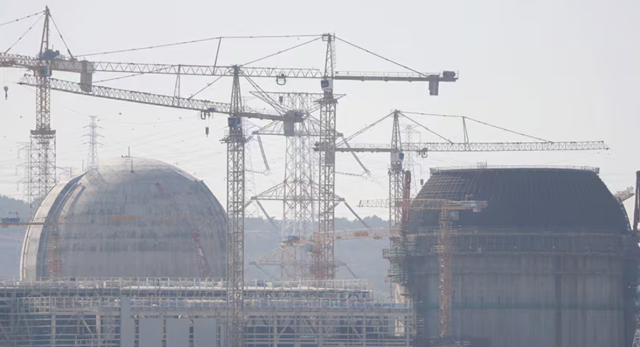
SEOUL, February 10 (AJP) - Nuclear power surpassed coal to become South Korea's largest source of electricity generation in 2024, accounting for 32.5 percent of total power trades, marking its highest share in 15 years, according to data from Korea Power Exchange on Monday.
Nuclear power plants generated 178,749 gigawatt-hours (GWh) of electricity last year, followed by liquefied natural gas at 29.8 percent and coal at 29.4 percent of the total 549,387 GWh traded. Renewable energy sources contributed 6.9 percent to the power mix.
The surge in nuclear power generation comes as the country moves away from its previous administration's nuclear phase-out policy. Nuclear's share had dropped to 23.7 percent in 2018 but has since recovered to its highest level since 2009, when it accounted for 34.8 percent of power generation.
The shift marks a significant change in South Korea's power generation landscape, where coal had dominated for 17 years since 2007, typically accounting for around 40 percent of electricity production. Coal's share has steadily declined from its peak of over 45 percent, falling below 30 percent last year amid growing environmental concerns and decarbonization efforts.
The increased nuclear power output was largely attributed to improved operational efficiency, with nuclear plant utilization reaching 83.8 percent, its highest in nine years. The commercial operation of Shin Hanul Unit 2, which began in April after a five-year delay, significantly contributed to the increase.
"As a carbon-free power source capable of 24-hour generation, nuclear power will inevitably need to expand further to meet the surging demand from artificial intelligence applications," said Jung Dong-wook, a professor at Chung-Ang University.
Copyright ⓒ Aju Press All rights reserved.


View more comments